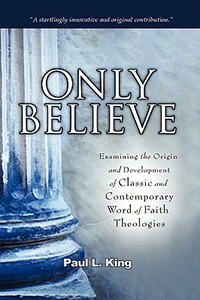In my last blog, I noted that in Scripture we are called by God to discern, not to judge, because only Christ ultimately exercises righteous judgment because only He knows the heart. Many times we think we are discerning when we are really just judging without discernment. We judge by what we see externally, not in the heart. We judge by our perceptions, but often our perceptions are askew. We judge by our minds, our knowledge, our experience. So we think we know. We trust our “judgment.”
But there is so much that we don’t know, so much that is out of our frame of reference, outside of our experience, so that we cannot really know. Without Christ, the Word of God, and the illumination of the Holy Spirit, we cannot know—therefore cannot judge. So the Scripture calls us to discern, not to judge. Scripture uses two particular Greek terms for discernment that is to be exercised by believers:
- Analytical Judgment—Discerning Analysis: anakrino; anakrisis
- Thoroughly Discerning judgment—Discerning Degrees of Purity: diakrino; diakrisis, dokimazo.
In this blog, we will look at the first of these: Analytical Judgment—Discerning Analysis. Analytical judgment is represented by the Greek terms anakrino (verb) and anakrisis (noun). This corresponds to the Old Testament terms biyn and bina, usually translated as “perception” or “understanding.” These terms have the meaning of “distinguish, examine, investigate, discern, appraise.” Literally, it means “to judge again,” i.e., to ponder, sift, weigh back and forth, assess, balance. An appraisal is an investigation of the value of something—a house, a piece of gold, a diamond, etc. We are to be appraisers, not judges.
Looking at the pros and cons, positives and negatives, and maintaining balance or moderation is the intent of this kind of judgment, which aligns with the biblical discernment foundation of Equilibrium (see Chapter 2 of my book Is It of God?).
Discerning Analytical Judgment is the provenance of the Church—those who are of the Spirit, those who are believers. This term is used of the noble-minded Bereans who “received the word with great eagerness, examining [anakrino] the Scriptures daily to see whether these things were so” (Acts 17:11). All believers are to exercise this type of judgment, and only through the Holy Spirit:
But a natural man does not accept the things of the Spirit of God, for they are foolishness to him; and he cannot understand them, because they are spiritually appraised [anakrino]. But he who is spiritual appraises [anakrino] all things, yet he himself is appraised [anakrino] by no one (1 Cor 2:14-15).
But if all prophesy, and an unbeliever or an ungifted man enters, he is convicted by all, he is called to account [anakrino] by all; the secrets of his heart are disclosed; and so he will fall on his face and worship God, declaring that God is certainly among you (1 Cor 14:24-25).
This type of judgment is the authority and responsibility of the church. It is not criticism or condemnation, but rather “critiquing,” that is, weighing and balancing both positives and negatives through discerning analysis. Merriam-Webster defines the noun critique as “a careful judgment in which you give your opinion about the good and bad parts of something (such as a piece of writing or a work of art).”
When I ask my seminary students to do a book critique, I expect them to note both positives and negatives, strengths and weaknesses. This is what believers are called to do—to evaluate the good and the bad in a balanced way—not to condemn, on one hand, nor to ignore shortcomings, on the other hand. However, this should not be done by our opinion, but by the guidance of the Holy Spirit.
Let us be praying daily: “Lord, help me not to be judgmental, but to exercise discernment. Help me to become a noble-minded Berean who receives the Word of God with great eagerness, examining the Scriptures daily to see whether these things are so.” By your Holy Spirit, give me divine perception. Holy Spirit, You are my Teacher, my Counselor, called alongside me to help.
Teach me to be a divine appraiser who does not give my opinions or judgments, but who gives a divine appraisal. Teach me how to ponder, how to sift, how to weigh back and forth, how to assess and balance. Teach me Your ways, O Lord. Teach me Your thoughts, O Lord. For Your ways and thoughts are so much higher and better than mine. Your discernment is so much better than mine. Impart to me the mind of Christ, I pray. In Jesus name. Amen.



Leave a Reply